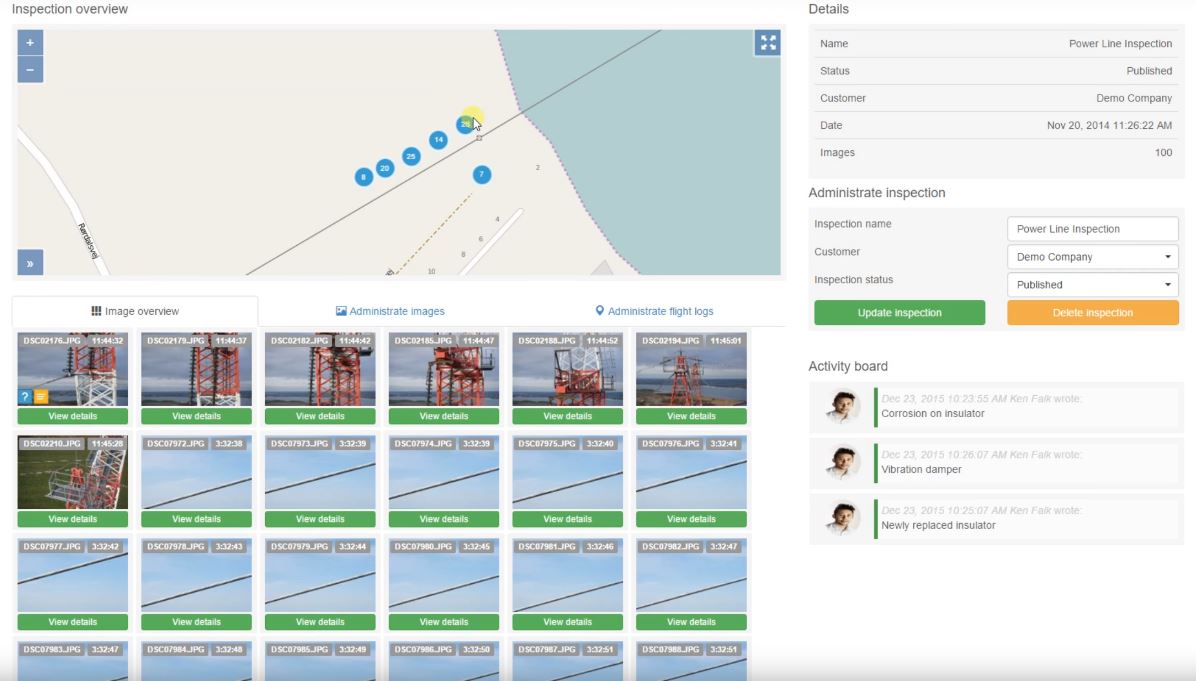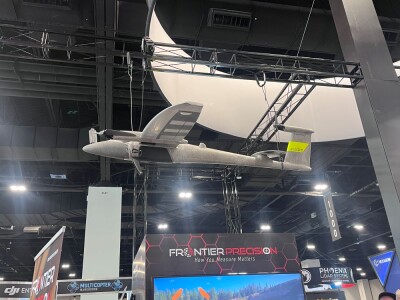Two independent Danish companies, Heliscope and Scopito, are on the brink of acquiring the first permanent BVLOS license in the world from the Danish Transport and Construction Agency.
Heliscope, a drone operator, and inspection software developer Scopito, are running a project together with two Danish Universities - University of Southern Denmark and the University of Aalborg - as well as with the Danish Transport and Construction Agency. This project consists of flying a drone beyond visual line of sight (BVLOS) over a power line infrastructure to detect faulty parts. Thousands of photos are taken with the drone and then stored, shared and analyzed by human analysts and artificial intelligence, using dedicated imaging software developed by Scopito.BVLOS for drones has been a topic of interest all over the world as it allows drone operators to extend their reach and services in a number of different ways in various industries and capacities. In Denmark and in many other countries, BVLOS flights are possible, but permits must be obtained from flight to flight. With a permanent BVLOS permit, those obstacles will be removed, workflow is facilitated in an efficient manner and and flight costs are lower.Scopito’s CEO Ken Falk said: “Drone inspections of power lines are becoming a strong business proposition, as utility companies are looking for ways to improve their asset management and to make re-investment plans more precise. But with BVLOS, the drone business will really begin to take off. The cost of inspection flights will drop by a factor of at least ten, maybe even more, when compared to normal drone inspections. And with true BVLOS, utility companies can carry out full line inspections rather than just point-to-point inspections, the way it’s done now.” The issues around this type of operation always come down to safety. How can you assure the safety of those around you, on the ground and air, if you can’t visually follow a drone? The two universities, University of Southern Denmark and the University of Aalborg, have carried out safety evaluations of the UAV flights during the project, and the results are equal, or even better, than the safety levels from commercial air traffic.“The test flights have been hugely successful, and the safety calculations show infinitesimally low risk of incident,” Falk added. “All we need now is the permit. We’re almost there, and we’re the first in the world to get there.”The Danish Transport and Construction Agency said a permanent BVLOS license will be issued, but only when the agency is fully satisfied with the results. Based on what we’ve seen, it won’t be long before that happens.Subscribe
The information you submit will be stored and used to communicate with you about your interest in Commercial UAV News. To understand more about how we use and store information, please refer to our privacy policy.
January 22, 2017
Denmark Set to Receive the First Permanent BVLOS License















Comments